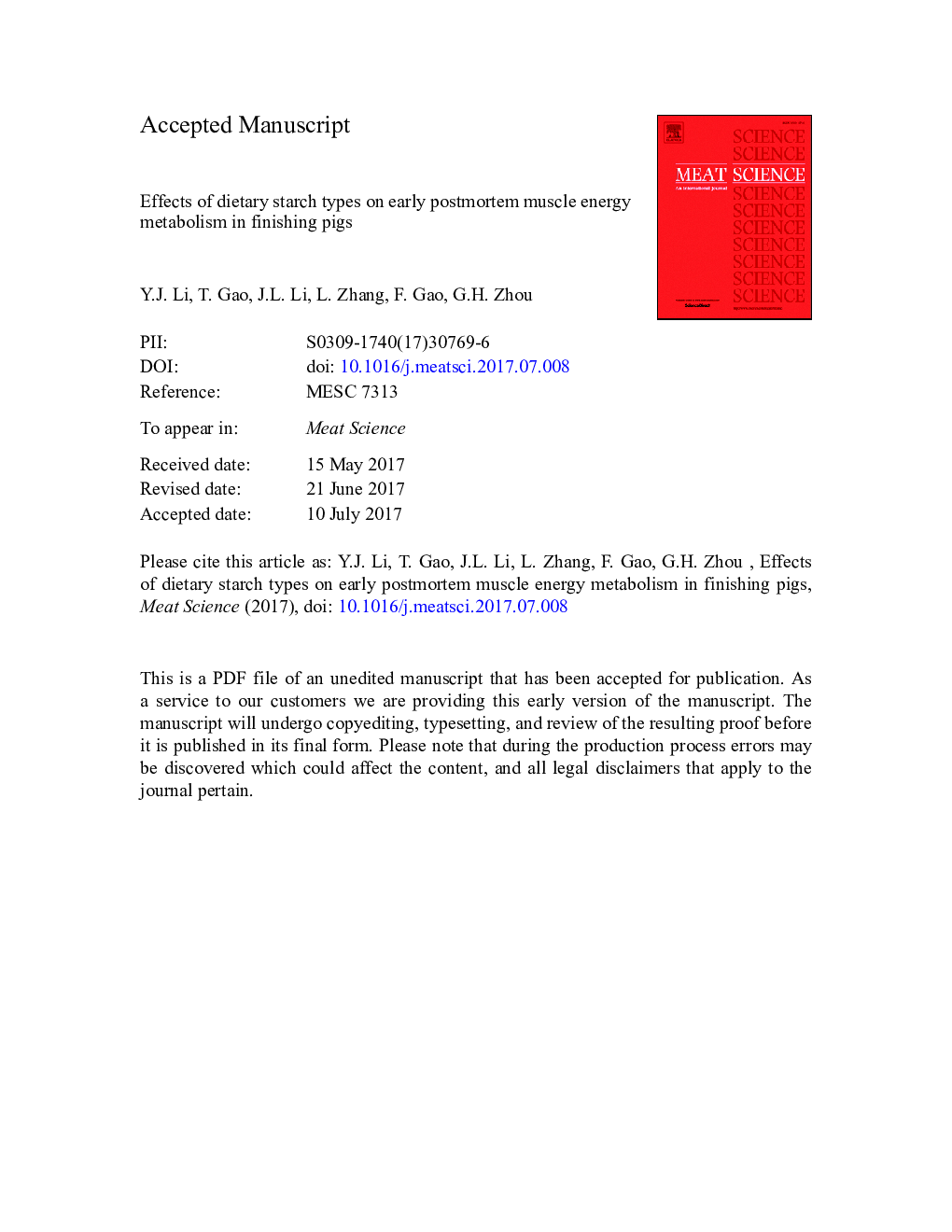| Article ID | Journal | Published Year | Pages | File Type |
|---|---|---|---|---|
| 5543313 | Meat Science | 2017 | 32 Pages |
Abstract
This study aimed to investigate the effects of different dietary starch types on early postmortem muscle energy metabolism in finishing pigs. Ninety barrows (68.0 ± 2.0 kg) were randomly allotted to three experimental diets with five replicates of six pigs, containing pure waxy maize starch (WMS), nonwaxy maize starch (NMS), and pea starch (PS) (amylose/amylopectin were 0.07, 0.19 and 0.28 respectively). Compared with the WMS diet, pigs fed the PS diet exhibited greater creatine kinase activity, higher adenosine triphosphate and adenosine diphosphate contents, lower phosphocreatine (PCr), adenosine monophosphate and glycogen contents, and lower glycolytic potential (P < 0.05). Moreover, the PS diet led to reduced percentage of bound hexokinase activity, decreased level of phosphorylated AKT (P < 0.05) and increased level of hypoxia-inducible factor-1α (P < 0.05). In conclusion, diet with high amylose content might promote PCr degradation and inhibit the rate of glycolysis, followed by attenuation of early postmortem glycolysis in finishing pigs.
Keywords
Related Topics
Life Sciences
Agricultural and Biological Sciences
Food Science
Authors
Y.J. Li, T. Gao, J.L. Li, L. Zhang, F. Gao, G.H. Zhou,
